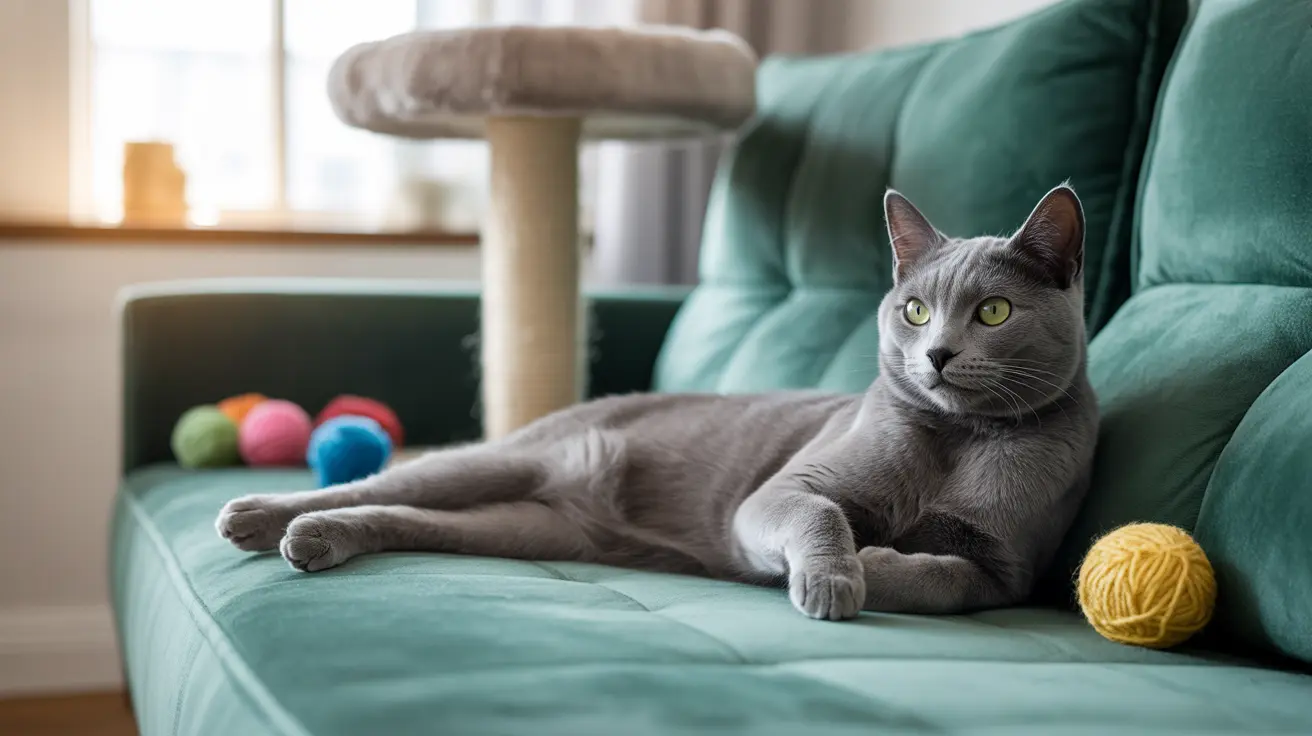The Russian Blue cat breed is renowned for its remarkable longevity and robust health, making it an excellent choice for those seeking a long-term feline companion. These elegant cats, with their distinctive silvery-blue coats and emerald green eyes, can bring joy to their families for up to two decades with proper care and attention.
Understanding the factors that influence your Russian Blue's lifespan is crucial for ensuring they live a long, healthy life. In this comprehensive guide, we'll explore everything you need to know about Russian Blue longevity, from average life expectancy to essential care tips that can help extend your cat's life.
Understanding Russian Blue Life Expectancy
Russian Blues typically enjoy a lifespan of 15 to 20 years, with some cats living even longer under optimal conditions. This impressive life expectancy exceeds that of many other cat breeds, thanks to their naturally robust constitution and relatively few genetic health issues.
Several key factors contribute to their longevity, including their strong genetic makeup, generally good health, and adaptability to indoor living. When provided with proper care, nutrition, and regular veterinary attention, Russian Blues can remain active and healthy well into their senior years.
Key Factors Affecting Your Russian Blue's Lifespan
Genetics and Breeding
Russian Blues from reputable breeders tend to live longer due to careful breeding practices that minimize genetic health issues. These cats have been selectively bred for generations to maintain their characteristic health and temperament.
Diet and Nutrition
A balanced, high-quality diet is crucial for maintaining your Russian Blue's health and longevity. These cats can be prone to obesity, so portion control and proper nutrition are essential. Feed age-appropriate food and maintain a consistent feeding schedule to prevent weight-related health issues.
Environmental Factors
Indoor living significantly extends a Russian Blue's lifespan by protecting them from accidents, diseases, and other outdoor hazards. Creating a stimulating indoor environment with climbing spaces, toys, and scratching posts helps maintain both physical and mental health.
Essential Health Care for Longevity
Regular Veterinary Care
Scheduled check-ups, vaccinations, and dental care are crucial for preventing and early detection of health issues. Russian Blues should visit the vet at least annually, with senior cats benefiting from bi-annual check-ups.
Exercise and Mental Stimulation
Despite their reserved nature, Russian Blues need regular exercise and mental stimulation to maintain good health. Interactive play sessions and puzzle toys can help keep them physically active and mentally sharp throughout their lives.
Preventing Common Health Issues
While Russian Blues are generally healthy, they can face certain health challenges that may affect their lifespan. Regular monitoring for obesity, dental disease, and kidney issues can help prevent or manage these conditions effectively.
Maintaining proper dental hygiene through regular brushing and professional cleanings can prevent periodontal disease, which can impact overall health and longevity.
Frequently Asked Questions
What is the average lifespan of a Russian Blue cat, and how long can they live with proper care?
Russian Blues typically live 15-20 years, with some reaching 25 years with excellent care, proper nutrition, and regular veterinary attention.
How does diet and nutrition affect the longevity of Russian Blue cats?
A balanced, high-quality diet prevents obesity and related health issues. Proper nutrition supports immune function, maintains healthy body weight, and contributes to overall longevity.
What common health issues should Russian Blue owners watch for to help their cat live longer?
Monitor for obesity, dental disease, and occasional kidney issues. Regular vet check-ups can help detect and address these concerns early.
Does keeping a Russian Blue cat indoors impact its lifespan, and why is it recommended?
Yes, indoor living significantly increases lifespan by protecting cats from accidents, diseases, and predators. It's highly recommended for Russian Blues.
How often should I take my Russian Blue to the vet to maximize its lifespan and health?
Schedule annual check-ups for young adults and bi-annual visits for senior cats. Regular preventive care helps identify and address health issues early.
With proper care, attention, and love, your Russian Blue can be a cherished family member for many years to come. Focus on preventive health care, maintain a healthy diet, and provide plenty of environmental enrichment to help your cat achieve their maximum life expectancy.






